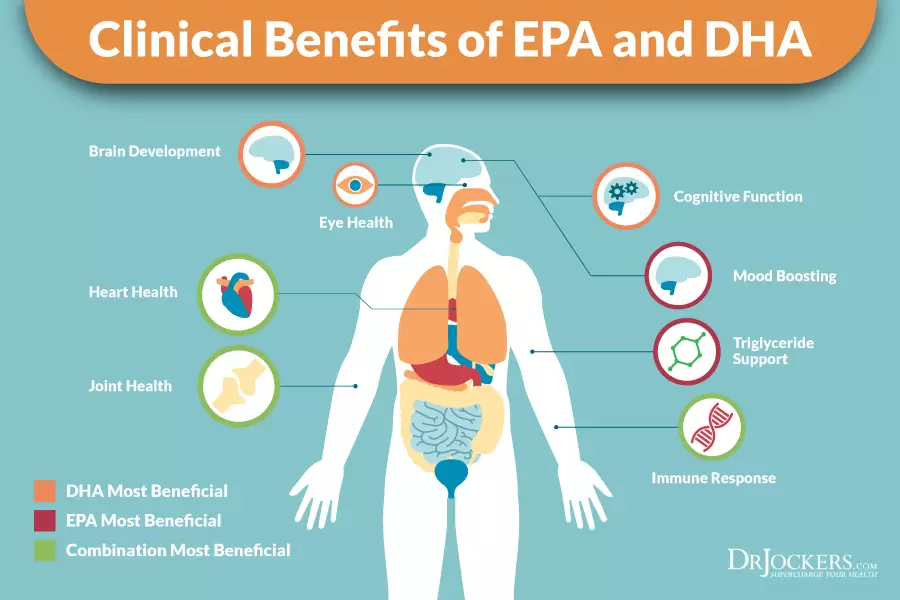
Introduction
The growth of dietary supplements in Malaysia are spiking from time to time. Along with vitamin C, calcium, and multi-vitamins/minerals, fish oil is one of the most common consumed supplement1. Usually, fish oil is taken for general health maintenance and lipid profile enhancement. It contains essential omega-3 fatty acids which cannot be manufactured in our body: eicosapentaenoic acid (EPA) and docosahexaenoic acid (DHA). Thus, if you do not eat fish for at least twice a week2, taking a fish oil supplement could help you to get enough EPA and DHA.
Introduction
The effects of omega-3 fatty acids on human health have been well established in many studies. EPA alone is most beneficial for mood boosting and triglyceride support. DHA alone is most beneficial for our brain development, cognitive function, and vision. Asking which one is better between EPA and DHA is like asking which hand is better: left or right? In fact, both EPA and DHA are beneficial for our heart health, joint health, and immune response as illustrated below.

Source: https://drjockers.com/omega-3-fatty-acids/
Recommended Dosage for Heart Health
The recommended dosage of EPA and DHA vary from person to person. For instance, giving a fixed dose of 500 mg per day to those who are having coronary heart disease may not be effective. Therefore, the recommendations should be based on individual omega-3 fatty acids requirements.
| Health Condition | Recommended Dosage |
Low Strength Fish Oil | Medium Strength Fish Oil | High Strength Fish Oil |
| General health maintenance | 500 mg EPA + DHA3 | 2 capsules | 2 capsules | 1 capsule |
| Coronary heart disease | 1000 mg EPA + DHA3 | 4 capsules | 3 capsules | 2 capsules |
| High triglyceride level | 2000 – 4000 mg EPA + DHA4 | 7 – 13 capsules | 5 – 9 capsules | 4 – 8 capsule |
| Table 1: Recommended Dosage of EPA + DHA for Heart Health | ||||
Recommended Dosage for Heart Health
Almost 90% of the commercial fish oil supplements in the market offer 1000 mg of total fish oil in a single capsule. Some might provide 20 – 50% extra total fish oil per capsule. However, this does not indicating the exact amount of EPA and DHA, the active ingredients for heart health. In fact, not all fish oil supplements provide the same amount of EPA and DHA as demonstrated in Table 2. Table 2 compares three different strength of fish oil supplements presence in the market.
| Low Strength Fish Oil | Medium Strength Fish Oil | High Strength Fish Oil | ||
| Total Fish Oil/Capsule | 1000 mg | 1500mg | 1000 mg | |
| Total EPA | 180 mg | 270mg | 330 mg | |
| Total DHA | 150 mg | 180mg | 220 mg | |
| Total Omega-3 Fatty Acid (EPA + DHA) | 330 mg | 450mg | 550 mg | |
| Total Omega-3 Fatty Acid Percentage | 33% | 30% | 55% | |
| Table 2: Comparison Between Fish Oil Supplements | ||||
As you can see, although medium strength fish oil provides extra 500mg of total fish oil in a single capsule, however its total EPA and DHA content is still lower than the high strength fish oil. In another words, higher amount of total fish oil may not having higher amount of DHA and EPA.
Meanwhile, Table 1 shows the number of fish oil capsule/s need to be consumed accordingly to the recommended dosage for particular health condition. For example, individuals with high triglyceride level need to consume up to 7 – 13 capsules of low strength fish oil supplement daily in order to meet the recommended dosage. Although, they can take a large number of capsules at separate time, isn’t it more convenient if they take the high strength fish oil supplement directly?
Conclusion
EPA and DHA are the main component of regulating heart health. When purchasing fish oil supplement, it is not the type of fish that matters, but the dosage of EPA and DHA. Thus, it is advisable for you to read the label before purchasing as the EPA and DHA dosage might be different between one product to another. Besides, if your health condition requires high dosage of EPA and DHA, you may opt for high strength fish oil supplement for your own convenience.
References
- Nor Azian Mohd Zaki et al. 2015. Food supplement intake among adults: Findings from the Malaysian Adult Nutrition Survey 2014. Medical Journal of Malaysia, 70(1) available at http://www.e-mjm.org/2015/v70s1/mjm-sept-suppl-2192.html
- Kris-Etherton PM, Harris WS, Appel LJ. 2002. Fish consumption, fish oil, omega-3 fatty acids, and cardiovascular disease. Circulation, 106: 2747-2757
- International Society for the Study Fatty Acids and Lipids (ISSFAL). GOED Recommendation for EPA DHA available at https://www.issfal.org/assets/globalrecommendation summary19nov 2014landscape_-3-.pdf
- Mckenney, J. M., & Sica, D. 2007. Role of Prescription Omega-3 Fatty Acids in the Treatment of Hypertriglyceridemia. Pharmacotherapy, 27(5), 715-728



